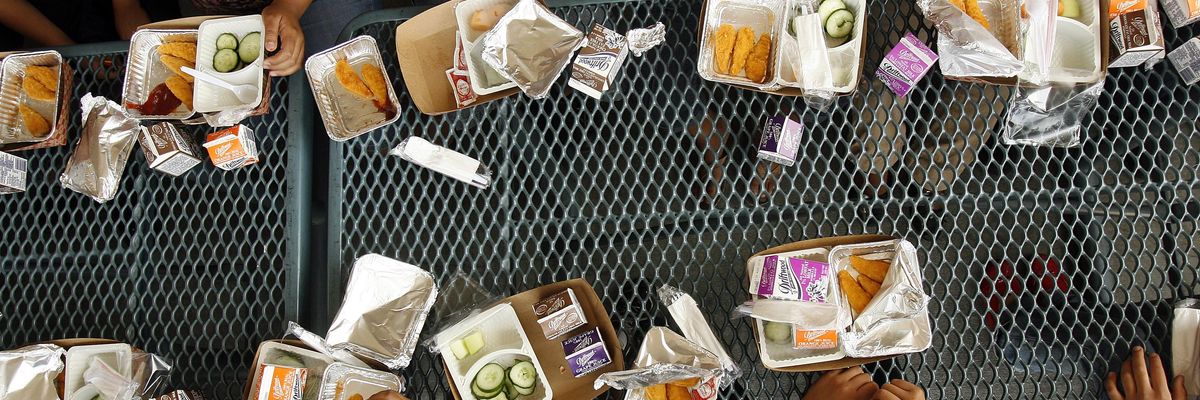A new "millionaire's tax" in Massachusetts was expected to generate $1 billion in revenue last year to help pay for public education, infrastructure, and early childcare programs, but projections were a bit off, according to a fresh state analysis.
The state Department of Revenue estimated late last week that the Fair Share Amendment, which requires people with incomes over $1 million, to pay a 4% annual surtax, will add $1.5 billion to state coffers this fiscal year, which ends in June—surpassing expectations.
Universal free school meals, much-needed improvements to an aging public transportation system, and tuition-free education for community college students are just some of the programs Massachusetts' wealthiest residents have helped pay for after voters approved the law in 2022 amid growing calls across the United States to tax the richest households and corporations.
The amendment was narrowly passed via a statewide ballot initiative in 2022 despite claims by opponents that it would force wealthy residents and businesses to leave the state.
The state analysis of the law shows that requiring wealthy households to pay more in taxes to contribute to the greater good has overall benefits for the state, said observers including Jonathan Cohn, political director for Progressive Massachusetts.
"The Fair Share Amendment has had a great first year. Looking forward to many more!" said the organization.
According to Fair Share, which advocated for the passage of the referendum in 2022, $150 million of the new revenue has been allocated to expanding green infrastructure and other construction projects in schools, while it cost the state's richest taxpayers just $69 million to fund free school meals for every child in Massachusetts, "saving families hundreds of dollars."
More than $205 million is being spent to upgrade, repair, and maintain the Massachusetts Bay Transportation Authority system, and $150 million is going toward bridge and road repairs. Expanded access to high-quality childcare and pre-kindergarten is being paid for with just $70.5 million, and $50 million is going toward tuition-free community college.
The investments are "only possible because the voters passed this constitutional amendment and we created this new tax," Andrew Farnitano, spokesperson for the Raise Up MA Coalition, told WBUR.
"The money is going where it was promised," he added. "Those are fundamental investments in our economy that are needed to make sure it works for everyone."
Farnitano toldMassLive that revenues from the Fair Share Amendment are expected to increase as much as $2 billion by the time the 2025 budget goes into effect.
“Over the past few months, we've seen the impact, and that will only grow," he said.
An overall decline in other state revenue shows that the public spending would be impossible without the Fair Share Amendment, Farnitano told WBUR.
A Politico/Morning Consult poll found in September 2021 that 74% of Americans agreed with the statement, "The wealthiest Americans should pay higher taxes," and a Gallup survey found in August 2022, three months before the Massachusetts law was passed, that 52% of respondents believed the U.S. government should "redistribute wealth by heavy taxes on the rich," while 47% disagreed.

